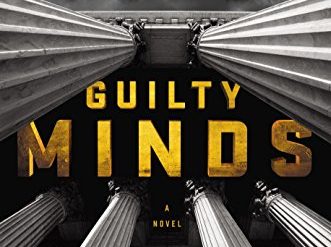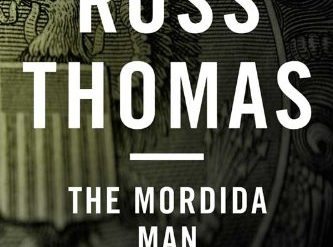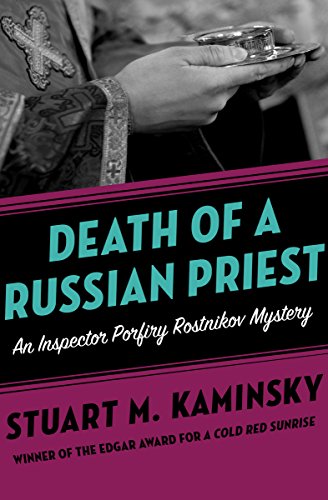
Those were heady times for the West as the old Soviet Union crumbled before our eyes. Gorbachev’s reforms. The fall of the Berlin Wall. The old guard coup that failed. Then the dissolution of the Soviet Union itself, the rise of Boris Yeltsin, and the free market reforms. For us, the changes were exhilarating. But for Russians it was a nightmare. Everything they had known, all the certainties in their lives, Communism itself—it was all falling apart. And that is the background so artfully pictured in Stuart Kaminsky’s clever Russian murder mystery, Death of a Russian Priest.
Estimated reading time: 6 minutes
A wrenching change for Moscow’s police
For years, Inspector Porfiry Rostnikov and his small team of detectives in the Ministry of Internal Affairs were on the sidelines. Officially, they and their boss, the vainglorious Colonel Alexandr Snitkonoy, were permitted only to take on minor cases. The KGB handled everything political—and every case was political, if they willed it so. Rostnikov undertook major investigations only by subterfuge and bending, or breaking, the rules.
But now the world has turned upside down. The KGB is officially gone. And Colonel Snitkonoy, “the Gray Wolfhound,” is in the ascendancy. “His mission prior to the new directive had been almost entirely ceremonial,” Kaminsky writes, “but all that had changed. The Gray Wolfhound and his men now had the official responsibility for politically sensitive cases that no other branch would touch. In short, the Gray Wolfhound’s Special Section was now the unofficial scapegoat of the new and not yet clearly defined criminal justice system.” And so it is that when news reaches Moscow of the murder of a famously outspoken village priest, it’s Rostnikov who is assigned to the case.
Death of a Russian Priest (Inspector Porfiry Rostnikov #8 of 16) by Stuart M. Kaminsky (1992) 230 pages ★★★★☆
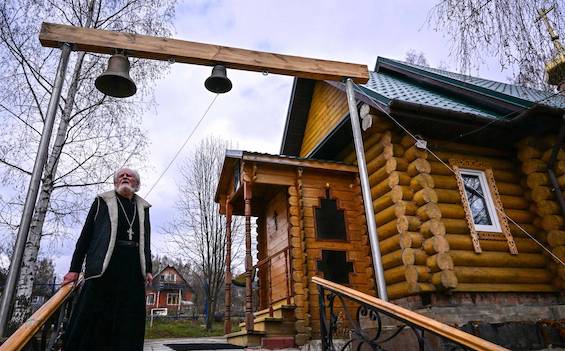
The God that failed
Father Vasili Merhum is dead. The priest, who is known throughout Russia for speaking out against the repression of the Orthodox Church, has been brutally murdered and dismembered with an axe. And no one in the village of Arkush is able to identify the assassin except the man himself. For Rostnikov and his colleague, Emil Karpo (“The Vulture”), the mystery will call upon their deepest reserves of observation and insight. Yet Rostnikov is preoccupied with family responsibilities, and Karpo is out of sorts. The Vulture is experiencing the confusion and rootlessness reflected in that famous 1949 book of essays about disillusionment with Communism, The God That Failed.
“For more than forty years of his life,” Karpo reflects, “all meaning had been contained in the Soviet state and the revolution. The function of Emil Karpo had been to obey his superiors and locate and bring to justice all criminals, all enemies of the revolution. The union was gone. . . The party was underground, crying in pain, dying. The revolution was gone and there was nothing ahead but a gray imitation of the Western democracies.”
An unprecedented turn to violence
Meanwhile, the third member of Rostnikov’s little team, young Sasha Tkach, has troubles of his own—and is acting out in uncharacteristic ways. With a newly assigned partner in tow, Sasha stands patiently in line at a food truck waiting for what seems an interminable time for a pizza. And when at last the pair reach the head of the line, the owner announces there are no more pizzas. Sasha pulls the man from the truck and proceeds to beat him savagely until, at last, the man’s partner offers up the one pizza they’d been saving for themselves. And this is not the young detective’s only turn to violence. Like so many others in Boris Yeltsin’s new Russia, Sasha is coming unhinged.
And no wonder. “The price of everything had gone up with Yeltsin’s free market insanity,” Sasha muses. Salaries that were pitifully low before the wave of changes now fall far short of covering even life’s necessities. A tragedy for Sasha, with a young daughter and a pregnant wife at home. And the perestroika launched five years earlier by Mikhail Gorbachev has introduced massive confusion, shuffling, merging, and abolishing government departments right and left. All too often, there’s no there, there, to misuse Gertrude Stein’s famous quip.
Despite the changes, the KGB lives on
While Rostnikov, Karpo, and Tkach are struggling with the new conditions imposed on their lives, larger shifts are underway in Russia. The ruthless men at the helm of the old KGB are intent on regaining their power over the citizenry. The KGB colonel who had made Rostnikov’s life miserable is now gone. But his successor, a devious and resourceful secret policeman, has set out to displace Rostnikov’s boss, Colonel Snitkonoy. Using the more limited resources now at his disposal, he has sent operatives to spy on Rostnikov, Karpo, and Tkach, hoping to catch them in errors and steal the credit for their successes in the field. When he demonstrates the Gray Wolfhound’s blunders and his own success in stopping crime, he will elevate his own department above Snitkonoy’s.
About the author
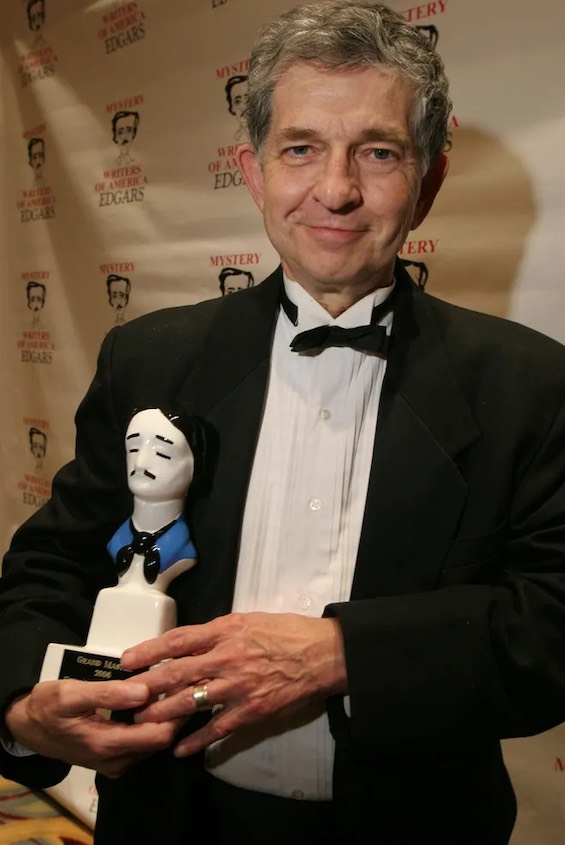
Stuart Kaminsky died in 2009. In his obituary in the New York Times, Margalit Fox wrote, “Stuart M. Kaminsky, a film scholar turned detective novelist who was widely known for his prodigious output, complex characters and rich evocations of time and place, including Hollywood in its Golden Age, died on Friday in St. Louis. He was 75. The cause was hepatitis C, which Mr. Kaminsky contracted as an Army medic in the late 1950s, his wife, Enid Perll, said. . .
“The author of more than 60 crime novels, Mr. Kaminsky typically wrote two or more books a year. A past president of the Mystery Writers of America, he was named a Grand Master, the organization’s highest honor, in 2006.”
The Inspector Porfiry Rostnikov books constitute one of three long-running series of crime novels Kaminsky wrote. He won an Edgar Award in 1989 for one of the novels in the series.
For related reading
This is one of a superb series of Police procedurals spanning modern Russian history.
I’ve reviewed all seven novels in the series that precede Death of a Russian Priest, beginning with Death of a Dissident (A grim murder mystery set in the USSR). Most recently, I reviewed the seventh book, Rostnikov’s Vacation (A government conspiracy in the tumult of the Gorbachev era). Later, I reviewed the ninth entry, Hard Currency (A Russian detective on a murder case in Castro’s Cuba).
For perspective on later developments in Russian history, see Good books about Vladimir Putin, modern Russia and the Russian oligarchy.
You might also enjoy my posts:
- Top 10 mystery and thriller series
- 20 excellent standalone mysteries and thrillers
- 30 outstanding detective series from around the world
- Top 20 suspenseful detective novels
- Top 10 historical mysteries and thrillers
And you can always find my most popular reviews, and the most recent ones, on the Home Page.


